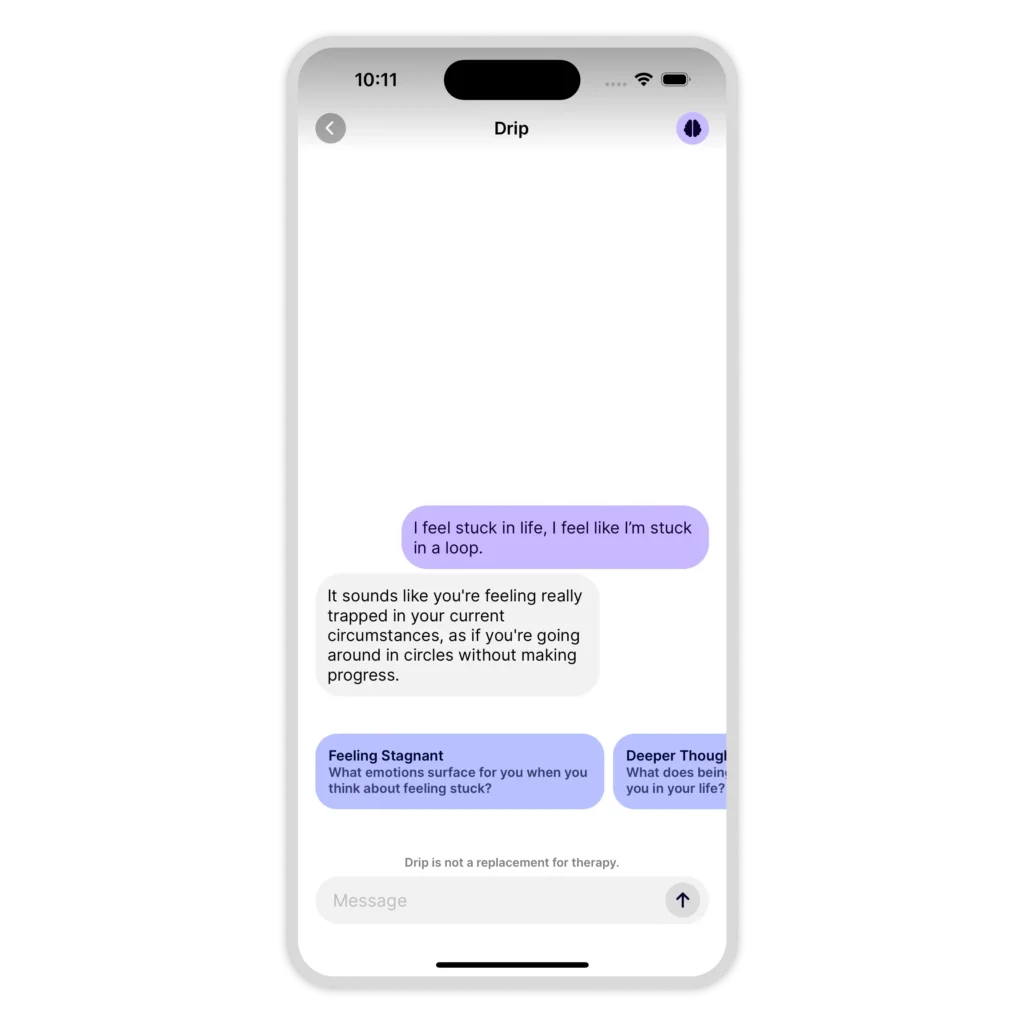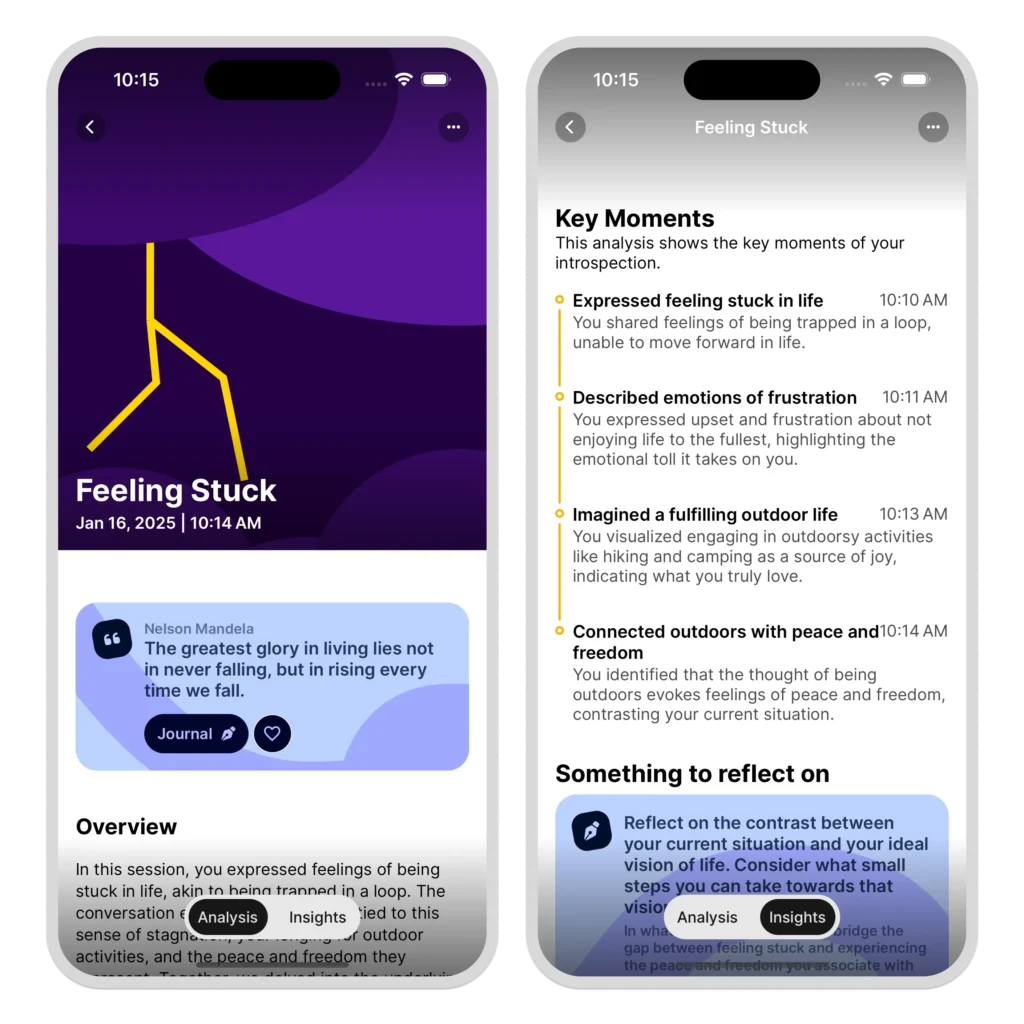In recent years, artificial intelligence (AI) has made significant strides in the field of mental health care. While AI is not a replacement for traditional therapy with a licensed professional, it can serve as a powerful complementary tool to support mental well-being.
AI Chatbots: On-Demand Emotional Support
One of the key ways AI is being used in mental health is through “chatbots” or conversational AI. These AI-powered apps allow users to engage in natural conversations about their thoughts, feelings and experiences. The AI analyzes the user’s responses and provides empathetic support, coping strategies, and personalized insights. This 24/7 on-demand support can help individuals better understand their mental state, work through challenges, and build emotional resilience.
Real-World Example: Drip App

For example, the mental health app Drip uses an AI chatbot as one of its core features. Users can have introspective conversations with the AI on a regular basis. The AI then analyzes these discussions to identify trends, potential issues, and areas of progress. This “big picture” analysis can uncover valuable insights that may not be apparent from a single therapy session. The AI acts as an attentive listener and impartial third party to help users gain self-awareness.
Beyond Chatbots: AI Analysis and Recommendations

In addition to AI chatbots, machine learning algorithms are being applied to assess an individual’s writings, such as in a digital journal, for signs of mental health conditions like depression and anxiety. Mood tracking with AI can detect subtle changes over time that could indicate an issue needing attention. Personalized AI recommendations can suggest relevant self-care activities, coping techniques, or professional help resources.
The Limitations of AI in Mental Health
It’s important to emphasize that while AI shows great promise in mental health, it has limitations and cannot replace human therapists. Discussing your mental health with a qualified professional is still the gold standard of care. Effective treatment often requires a strong therapeutic alliance, tailored interventions, and human intuition that AI cannot fully replicate.
AI as a Complementary Tool
However, AI tools can make mental health support more accessible, convenient, and insightful for a wider range of people. When used responsibly in conjunction with traditional therapy, innovations like on-demand chats, emotional analysis, personalized recommendations, and digital mood tracking have the potential to significantly improve mental wellness on a broad scale. As AI continues to advance, it will likely play an increasingly valuable role in helping us understand and nurture our mental health.
